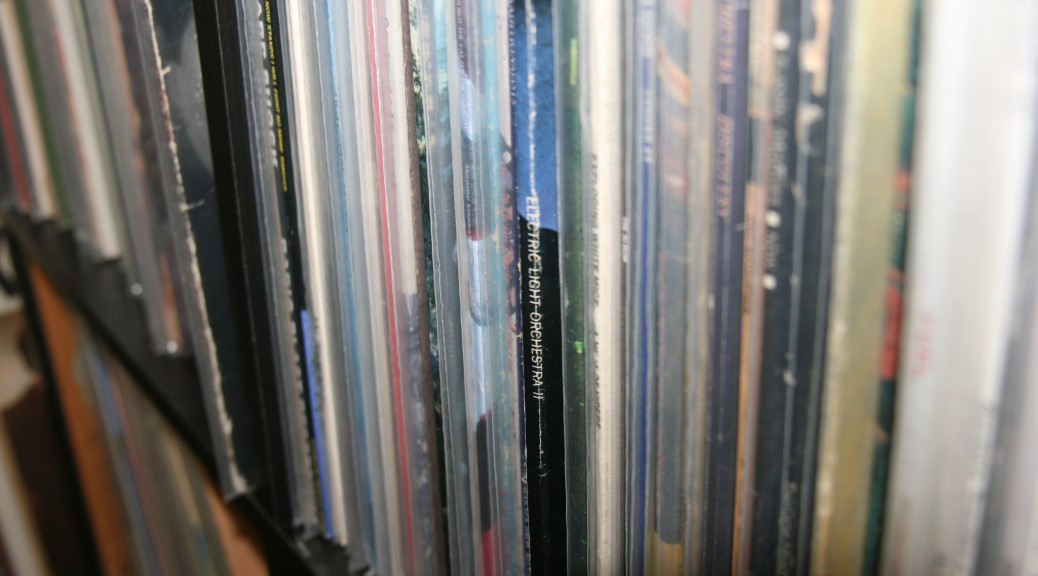The next step will be finding a comfortable storage space for your vinyl records. Here are some helpful tips to keep in mind for secure storage before you construct or purchase record shelves, record crates, shelving units, cabinets, etc. That way you can plan ahead, and find a great place to build your collection, with room to grow.
- Vinyl records should always be stored in a dry, cool environment. Keep them out of direct sunlight, as the UV rays and heat can warp the record, as well as fade the record jacket artwork. Frequent changes in temperature, along with humidity, can also warp the vinyl. Store vinyl away from heating sources, such as air vents, open fires, stoves, heaters, etc. Try this method to help with warped records:
- Remove the vinyl from the record jacket, but leave it in the record sleeve.
- Put the vinyl between two thick pieces of glass or between two smooth, flat surfaces.
- Place heavy objects on top of the glass or surface to help flatten out the vinyl. Make sure the weight on top isn’t too heavy.
- Remove after several hours to a day.
- Also store away from damp areas, as humidity will provide a fertile ground for mold growth, which can destroy your limited edition covers.
- Storing your records vertically is the best position to keep them to minimize damage. Make sure not to keep them too tightly together, so that the jacket and vinyl keep form. Stacking your records flat on each other or having them lean, can cause warping.
- Storing records in an airtight container or cabinet as additional protection is a great idea if available.
- Storing each record in a record jacket and record sleeve will help to protect from dust and dirt. Use a mini vacuum to help keep your collections outside sleeves dust free. To help minimize your vinyl’s exposure to the air and dust, take it directly from its jacket/sleeve onto the turntable, and return it to the sleeve directly after play.
- Make sure your record player is in great, working condition. Keep the needle clean and sharp, because a poorly maintained needle and player can cause damage to your vinyl.
- It’s important to hold records by the outer edges or the center label only, because oils from your fingers can build up on the vinyl over time. Also try to avoid touching the grooves to prevent scratches.
- A method known as “wet playing” can actually damage your record more by driving dust and dirt into its grooves. It consists of coating a record with water before playing it to help reduce popping and hissing sounds. As well as damaging the grooves, the water can also loosen the glue holding the stylus to its cantilever.
- Using dividers to organize and categorize your records will help immensely with keeping track of your collection, as well as making them easy to find and store. You can buy them at specific sizes to match your vinyls size and storage space. Available for 33⅓ rpm, 45 rpm, and 78 rpm.
- Having digital copies of your records is a great idea so that your music collection is never lost, plus can travel easier.
- Keeping a digital database of your records using excel or another program, is a helpful way to keep track of your record collection and songs.
